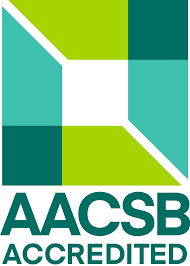
2nd
Place in National 2022 Fed Challenge Team
$95,000
Median annual wage of workers 25-59 with an economics degree
1400+
Economist job openings every year
Career Paths for this Degree Include:
Collect and analyze data on market trends, consumer preferences, and competitor activity to inform marketing strategies.
Collect, analyze, and interpret large amounts of data to help businesses make informed decisions.
Identify potential business opportunities and develop strategies to expand a company's customer base.
Work with government agencies or non-profit organizations to analyze policy issues and develop solutions.
Required Courses:
- ECN 321 - Intermediate Microeconomics
- ECN 322 - Intermediate Macroeconomics
- ECN 324 - Financial Markets and Institutions
- ECN 328 - Public Finance
- ECN 377 - Introduction to Econometrics and Data Analytics
- ECN 428 - Applied Regional Analysis or
- ECN 429 - Economics of Growth and Development or
- ECN 477 - Advanced Econometrics and Research Methods
Plus, choose two courses from the following:
- ECN 324 - Financial Markets and Institutions
- ECN 325 - Environmental Economics
- ECN 326 - Comparative Economic Systems
- ECN 327 - Health Economics
- ECN 328 - Public Finance
- ECN 330 - Natural Resource Economics
- ECN 421 - History of Economic Thought
- ECN 426 - International Trade and Finance
- ECN 427 - Labor Economics
- ECN 428 - Applied Regional Analysis
- ECN 429 - Economics of Growth and Development
- ECN 432 - Advanced Open Economy Macroeconomics
- ECN 433 - Introduction to Speculative Markets
- ECN 477 - Advanced Econometrics and Research Methods
- ECN 495 - Seminar in Economics
- BAN 400 - Big Data Analytics
- BAN 402 - Predictive Analytics
- FIN 431 - Real Estate Investment Analysis
- FIN 440 - Portfolio Design and Management
- FIN 441 - Financial Analytics
- MKT 440 - Marketing Analytics
- MKT 443 - Marketing Research Design
We go beyond traditional classrooms, providing hands-on experiences that transform knowledge into action. Our commitment to applied learning empowers students to bridge theory with real-world challenges. We offer a range of opportunities specific to our economic students such as:
- NYC Experience Trip
- Prague Consulting Project
- Business Week
- Coaching and interview preparation from experienced professionals
- Resume assistance to tailor to industry expectations
- Student organizations and more!
We place a high priority on preparing students for internships and providing networking opportunities to meet potential employers. Providing all the opportunities you'll need to make connections that matter. Our students are highly successful securing opportunities with all leading firms throughout the region and industry.
We also have a dedicated Career Success Center within Cameron that helps students discover their passions and achieve their professional career goals by providing career coaching and consultation as well as helping aid in your job search.
The Cameron Executive Network (CEN) is a volunteer network made up of current and retired business executives who are dedicated to enhancing the education and career development of undergraduate Cameron School of Business students through individual mentoring.





